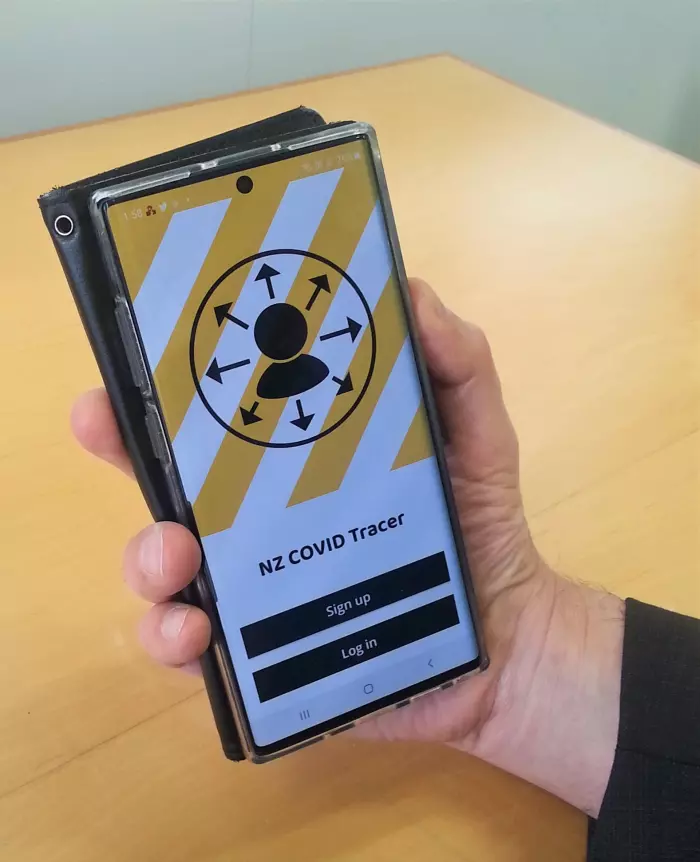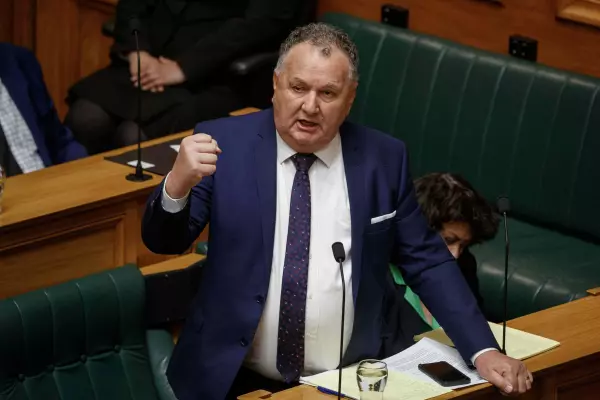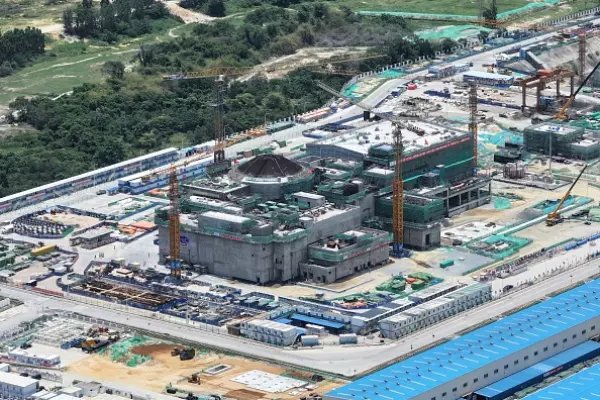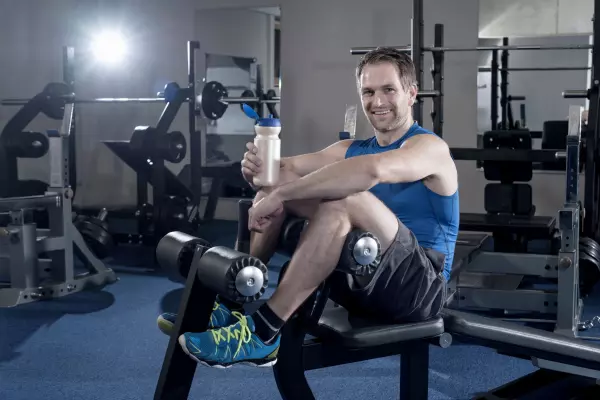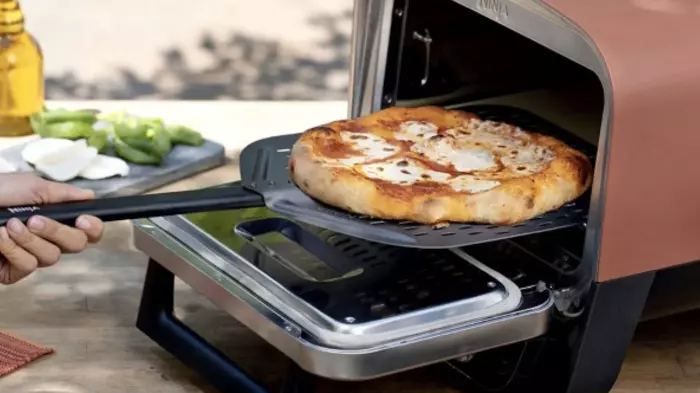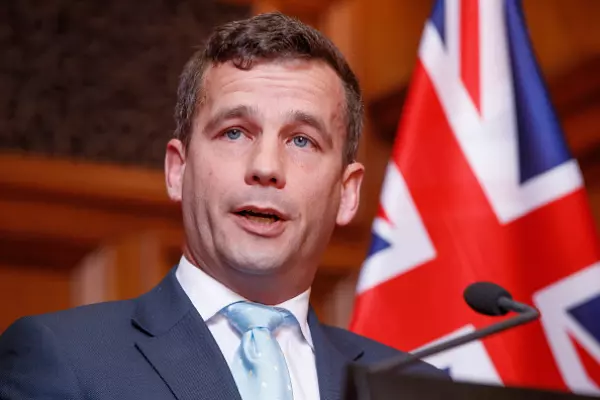The Ministry of Health's Covid Tracer smartphone app is "almost certain to achieve nothing with regard to slowing the virus," says a report received in the Department of Prime Minister and Cabinet more than a month ago from the backers of an alternative tracing technology option known as the CovidCard.
BusinessDesk has obtained a copy of the June 5 final report on the locally developed bluetooth alternative which says "we do not consider it possible for a voluntary app to reach the requisite levels of compliant adoption or, therefore, have any impact on contact tracing efforts of the spread of covid-19."
It suggests that New Zealand's covid elimination strategy can only be credibly maintained with much greater adoption of an easier-to-use tracing technology than currently exists.
Prime Minister Jacinda Ardern and Health Minister Chris Hipkins yesterday called for New Zealanders to start using the official Covid Tracer app because of its importance as one tool in the urgent contact tracing efforts that will be required in the likely event that there is a covid-19 outbreak at some point in the future.
About one-in-eight New Zealanders have downloaded the app and one-in-16 may be using it on a daily basis, a rate that Ardern said was "not good enough." She added that if businesses were not voluntarily displaying the QR code posters enabling the app's use, the government may consider making it mandatory.
Health Minister Hipkins said 11,000 people had downloaded the app since yesterday's call, meaning 607,000 people now have it on a smartphone.
However, the CovidCard report says that "the required rate of compliant adoption for any digital contact tracing technology is in excess of 60 percent."
"A compliant adoption rate of 40 percent, which is well beyond that achieved by any contact tracing app, thus far, would still only detect 16 percent of encounters. The goal for any digital contact tracing initiative really needs to target coverage of 80 percent of the most high risk encounters: bars, restaurants, public transport, private parties etc.
"Our existing digital apps - the NZ Covid Tracer app - including the planned future roadmap, are almost certain to achieve nothing with regard to slowing the virus. Promoting solutions that so obviously don't work is damaging because it erodes our future ability to drive adoption tools that can be effective."
The CovidCard initiative has been backed by Trade Me founder Sam Morgan and former Air NZ chief executive, Rob Fyfe, who worked from the Beehive in collaboration between the government and private sector in the early phases of the covid pandemic response. The report estimates it would cost $100 million to put in place.
It involves a wearable swipecard-sized plastic tag that is fitted with a bluetooth chip that sends a constant signal and picks up and registers signals from cards it comes into contact with. It carries no personal information and requires nothing from the wearer but to remember to carry it, and would allow contacts of a person who tests positive for covid-19 to be rapidly traced by matching CovidCard records to mobile phone numbers.
Speed of notification was identified by Ardern yesterday as one of the most important ways that technologies could assist with contact tracing, which she said would always be a primarily human-based activity.
'Foolish' to rely on tech
Ardern said primary reliance on technological tracing systems would be "foolish."
"The most important thing is still for us to establish who we had close contact with in personal one-to-one interviews, carried out multiple times, and then followed up by a team of individuals to ensure that others who have been in close contact are isolated and are tested," said Ardern. "That will still remain key. What we consider the technological solutions to be is an extra safety net on top of the core activity and so we will never solely rely on them.
"I think to do so would be foolish. We do, however, see what they can add if they are utilised," she said.
However, the paper summarising the success of early field trials also makes clear that it would take at least six months to roll out a CovidCard because of the requirement for further testing - some of which is now under way - and the need to build trust in them in the NZ community, and distribute them ahead of a covid outbreak.
"CovidCard needs to be deployed before it is needed, at a time where case numbers and public concern for covid-19 will likely be at an ebb."
The card has a key element in pushing, mainly from business interests, for an urgent development of strategy on how to open the NZ border safely to cushion the recessionary impact of the virus on the NZ economy, which has yet to be fully felt.
Fyfe, Business NZ chief executive Kirk Hope, former Labour Prime Minister Helen Clark and the Chief Science Advisor to the previous government, Peter Gluckman, have all been visible faces in a lobbying effort that appears out of step with the same sense of security among NZers following the successful elimination of the virus within the country's borders that is leading to low compliance with existing tracing systems.
The paper notes Singapore has abandoned phone-based tracing apps and "is now progressing a wearables strategy, very similar to that proposed by CovidCard."
Trials suggest the CovidCard could shave an average of four days off the time taken to trace a contact, dramatically reducing the number of people who would be likely to be infected by a person who had yet to be identified as having covid-19.
It also doubts that the Ministry of Health and the highly devolved district health board system of public health service delivery could deliver the CovidCard and "they may struggle to drive the necessary change into regional contact tracing efforts."


